Gupisone 20mg is a medication that contains the active substance Prednisolone. Prednisolone is a synthetic corticosteroid that is used to treat a variety of conditions. In this article, we will explore the indications, dose, administration, contraindications, precautions, pregnancy and lactation considerations, interactions, adverse effects, mechanism of action, uses, side effects, and overdose of Gupisone 20mg.
What is Gupisone 20mg?
– Mechanism of Action
Prednisolone, the active substance in Gupisone 20mg, belongs to the class of medications known as corticosteroids. It exerts its effects by binding to specific receptors in the body, modulating gene expression and influencing various processes.
Prednisolone has potent anti-inflammatory and immunosuppressive properties. It works by suppressing the immune system’s response, reducing inflammation, and inhibiting the release of inflammatory mediators. This mechanism of action makes it effective in alleviating symptoms associated with inflammation and immune-mediated conditions.
– Uses of Gupisone 20mg
Gupisone 20mg, containing Prednisolone, is used in the treatment of a wide range of conditions, including:
- Allergic reactions: It can help relieve symptoms of allergic rhinitis, contact dermatitis, or drug allergies.
- Asthma: Gupisone 20mg is used to manage severe asthma attacks and as an adjunct therapy for long-term control.
- Rheumatic disorders: It is effective in reducing inflammation and managing symptoms associated with rheumatoid arthritis, systemic lupus erythematosus, and other autoimmune conditions.
- Inflammatory bowel disease: Gupisone 20mg can help control symptoms of Crohn’s disease and ulcerative colitis.
- Dermatological conditions: It is used in the treatment of various skin disorders, including eczema, psoriasis, and dermatitis.
- Organ transplantation: Prednisolone is sometimes prescribed to suppress the immune system and prevent organ rejection after transplantation.
– Side Effects of Gupisone 20mg
While Gupisone 20mg can be highly beneficial, it can also cause side effects. The most common side effects associated with Prednisolone include:
- Increased appetite and weight gain
- Fluid retention and swelling
- Mood changes, such as irritability or mood swings
- Insomnia or sleep disturbances
- Gastrointestinal symptoms, such as indigestion or nausea
- Increased susceptibility to infections
- Skin changes, such as acne or thinning of the skin
- Increased blood sugar levels
- It is important to note that not everyone will experience these side effects, and the severity and duration of side effects can vary from person to person.
You may also want to read: Discover Savimale 20 mg Uses
– Indications
| Indications of Gupisone 20mg |
| Inflammatory conditions |
| Allergic reactions |
| Asthma |
| Rheumatoid arthritis |
| Dermatitis |
| Lupus erythematosus |
| Ulcerative colitis |
| Organ transplantation |
| Adrenal insufficiency |
| Certain types of cancer |
Gupisone 20mg, or Prednisolone, is indicated for the treatment of various inflammatory and immune-mediated conditions. These include:
- Allergic reactions: Gupisone 20mg can help alleviate symptoms of allergies such as itching, hives, and swelling.
- Asthma: It is commonly used to manage severe asthma attacks and to control chronic asthma in combination with other medications.
- Rheumatic disorders: Gupisone 20mg is effective in reducing inflammation and relieving pain associated with conditions like rheumatoid arthritis and systemic lupus erythematosus.
- Dermatological conditions: It can be used to treat skin conditions such as eczema, psoriasis, and dermatitis.
- Gastrointestinal disorders: Gupisone 20mg can help reduce inflammation in conditions like Crohn’s disease and ulcerative colitis.
- Certain types of cancer: Prednisolone is sometimes used as part of cancer treatment to manage symptoms or reduce inflammation caused by tumors.
– Dose and Administration
The recommended dose of Gupisone 20mg, or Prednisolone, may vary depending on the specific condition being treated and the individual patient. It is crucial to follow the instructions provided by your healthcare provider or the prescribing information.

Gupisone 20mg is available in tablet form and should generally be taken orally with or without food. Swallow the tablets whole with a glass of water. Avoid crushing or chewing the tablets unless directed by your healthcare provider.
It is important to adhere to the prescribed dosage and duration of treatment. Abruptly stopping the medication or altering the dosage without medical supervision can lead to withdrawal symptoms or a flare-up of the underlying condition.
– Overdose
Taking more than the prescribed dose of Gupisone 20mg can lead to an overdose. In case of an overdose, it is important to seek immediate medical attention or contact a poison control center. Symptoms of an overdose may include increased side effects, fluid and electrolyte imbalances, changes in blood pressure, and impaired adrenal gland function.
– Contraindications
While Gupisone 20mg is beneficial for many patients, there are certain situations in which its use is contraindicated. These include:
- Hypersensitivity: Individuals who have had an allergic reaction to Prednisolone or any of its components should avoid taking Gupisone 20mg.
- Active infections: Gupisone 20mg can suppress the immune system, making it more difficult for the body to fight off infections. Therefore, it should not be used during active infections, particularly systemic fungal infections.
- Vaccination: Live vaccines should be avoided while taking Gupisone 20mg due to the potential for decreased vaccine efficacy.
- Peptic ulcers or gastrointestinal bleeding: Gupisone 20mg can increase the risk of gastrointestinal ulcers or bleeding. It should be used with caution or avoided in individuals with a history of these conditions.
– Precautions
Before starting treatment with Gupisone 20mg, it is important to discuss your medical history and any ongoing medical conditions with your healthcare provider. Precautions to consider include:
- Diabetes: Prednisolone can raise blood sugar levels, so individuals with diabetes may require adjustments to their diabetes management plan.
- Hypertension: Gupisone 20mg can cause fluid retention and increase blood pressure. Regular monitoring of blood pressure is recommended.
- Osteoporosis: Long-term use of Prednisolone can increase the risk of osteoporosis. Adequate calcium and vitamin D intake, along with weight-bearing exercises, should be encouraged.
- Mental health conditions: Corticosteroids like Prednisolone can sometimes cause mood changes, including anxiety, depression, or insomnia. If you have a history of mental health conditions, discuss this with your healthcare provider.
- Glaucoma or cataracts: Prolonged use of Prednisolone can increase the risk of developing or worsening glaucoma or cataracts. Regular eye exams are essential.
– Pregnancy and Lactation
Pregnant or breastfeeding individuals should exercise caution when using Gupisone 20mg. Prednisolone can cross the placenta and enter breast milk, potentially affecting the developing fetus or nursing infant. The decision to use Gupisone 20mg during pregnancy or lactation should be made in consultation with a healthcare provider, weighing the potential benefits against the risks.
– Interactions of Gupisone 20mg
Gupisone 20mg can interact with other medications, altering their effectiveness or increasing the risk of side effects. Inform your healthcare provider about all the medications you are currently taking, including prescription drugs, over-the-counter medications, and herbal supplements.
Some common medications that may interact with Gupisone 20 mg include:
- Nonsteroidal anti-inflammatory drugs (NSAIDs): Concurrent use of Gupisone 20 mg with NSAIDs can increase the risk of gastrointestinal ulcers or bleeding.
- Anticoagulants: Prednisolone can interfere with the effectiveness of anticoagulant medications, such as warfarin, leading to an increased risk of bleeding.
- Diabetic medications: Prednisolone can raise blood sugar levels, so adjustments to diabetic medications may be necessary.
- Vaccines: Live vaccines may have reduced efficacy when administered during treatment with Gupisone 20 mg. Discuss vaccination schedules with your healthcare provider.
- Immunosuppressants: Concurrent use of immunosuppressant medications with Gupisone 20 mg can increase the risk of infections.
- It is essential to inform your healthcare provider about all medications you are taking to avoid potential interactions.
– Adverse Effects of Gupisone 20mg
Gupisone 20mg, like any medication, can have side effects. While not everyone will experience these side effects, it is essential to be aware of them. Common adverse effects of Prednisolone include:
- Increased appetite and weight gain
- Fluid retention and swelling
- Mood changes, such as irritability or mood swings
- Insomnia or sleep disturbances
- Gastrointestinal symptoms, such as indigestion or nausea
- Increased susceptibility to infections
- Skin changes, such as acne or thinning of the skin
- Increased blood sugar levels
- If you experience any severe or persistent side effects while taking Gupisone 20mg, it is important to contact your healthcare provider for further evaluation and guidance.
FAQs about Gupisone 20mg
What is prednisone used for?
Prednisone is a medication that belongs to the class of corticosteroids. It is commonly used to treat a variety of medical conditions, including:
- Inflammatory conditions: Prednisone is effective in reducing inflammation and is often prescribed for conditions such as arthritis, asthma, allergies, and inflammatory bowel disease.
- Immune system disorders: It can be used to manage autoimmune diseases like lupus, multiple sclerosis, and certain types of vasculitis.
- Skin conditions: Prednisone may be prescribed to treat severe allergic reactions, eczema, dermatitis, and certain types of skin rashes.
- Respiratory conditions: It is sometimes used to alleviate symptoms of chronic obstructive pulmonary disease (COPD), bronchitis, and asthma attacks.
- Organ transplantation: Prednisone is commonly prescribed as an immunosuppressant to prevent organ rejection after a transplant.
- Cancer treatment: In some cases, prednisone may be used as part of chemotherapy regimens for certain types of cancer.
What does prednisolone do for cough?
Prednisolone is occasionally prescribed for a persistent or severe cough that is caused by inflammation in the airways. It helps by reducing the inflammation and suppressing the immune response, which can alleviate cough symptoms. However, it’s important to note that prednisolone is not typically the first-line treatment for a cough, and its use should be determined by a healthcare professional.
What is prednisolone 5mg used for in a child?
Prednisolone 5mg is a specific dosage strength of prednisolone. In children, this medication is commonly used for various conditions, such as:
- Asthma: Prednisolone may be prescribed to manage acute asthma attacks or as a preventive treatment for chronic asthma in children.
- Allergies: It can be used to control severe allergic reactions or manage chronic allergic conditions in children, such as allergic rhinitis or atopic dermatitis.
- Inflammatory conditions: Prednisolone may be prescribed for certain inflammatory conditions, including juvenile rheumatoid arthritis and inflammatory bowel disease in children.
- Nephrotic syndrome: It is sometimes used to treat nephrotic syndrome, a kidney disorder characterized by excessive protein loss in the urine.
It’s important to note that the specific use and dosage of prednisolone in children should be determined by a healthcare professional based on the child’s condition and individual needs.


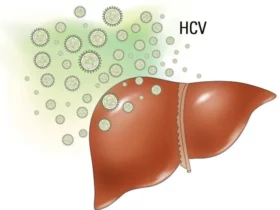

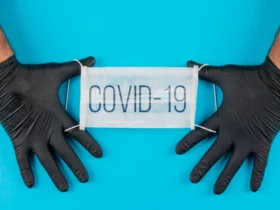

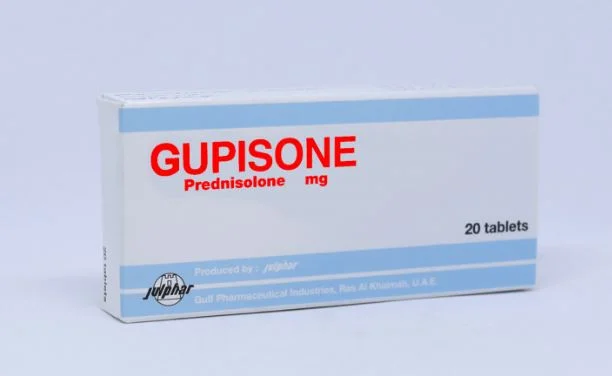
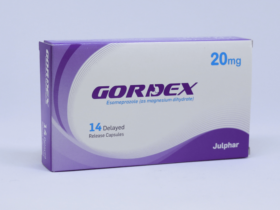
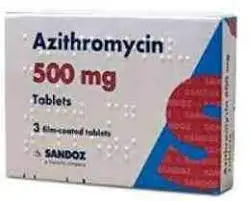

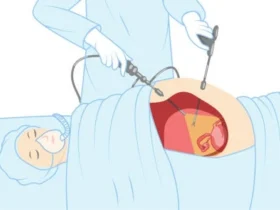
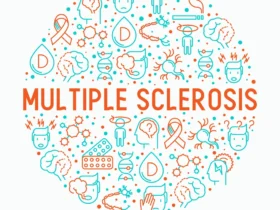

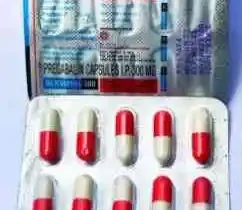
Leave a Reply